
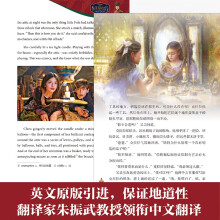
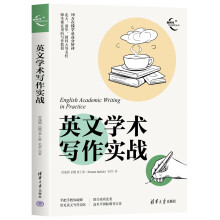
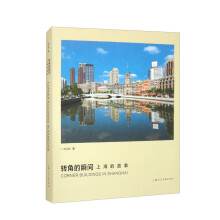

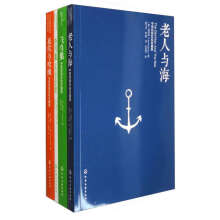
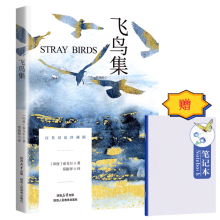




1.“红色经典系列”图书之一,读原著,学四史,感受伟大建党精神。
2. 本书原为作者发表于《法兰克福日报》的系列报道,向当时西方世界展示国名党的腐败统治,以及共产党如何带领人民为中国之未来而努力。
3. 全方位展示当时社会风貌,是记录近代中国社会的“文学档案”。
4. 英文故事性强,语言通俗易懂,更有名家导读注释,帮助读者轻松读懂原文,提高英语阅读能力。
Chapter IV
Peasants and Lords in China
The first realization we had of the desperate struggle being carried on between the poor peasants and the big landowners of China was in the city of Wusih. Five of us had gone by rail from Shanghai one early morning and changed at Wusih to continue our journey four hours by launch into a northern district where the class struggle is ferocious and where, on August 28, 1928, one thousand peasants had arisen against the big landowners. The peasants had been defeated, and left forty dead behind them on the field of battle.
Now we sat in a steam launch on one of the many canals of Wusih, waiting to go up-country where the landowners live as did the lords in the Middle Ages, in great houses guarded by soldiers, while the peasants in surrounding villages exist in a poverty equal to anything the Middle Ages ever produced. Here the peasants have organized into the Communist Party, although membership in this organization means death.
The launch in which we sat was filled with up-country peasants who watched every move we made and talked about us in low undertones. Suddenly a tall Chinese stepped on to the launch. He was about fifty years of age, dressed in a long, gray silk gown, soft heelless Chinese slippers, and a little round black cap. With him was an armed bodyguard in khaki1 uniform, with the Kuomintang sign on his cap. This tall Chinese, we learned, was the most powerful man in the district we were going to visit, the head of the powerful family, Chu: a rich landowner, known far and wide as the “Communist killer”. Because of this he must always go accompanied by an armed bodyguard lest some innocent-appearing peasant or boatman arise and suddenly send him to his last resting place.
[…]
During the day we walked through the countryside far and near, through seven different villages that lay between Chu Cha-li and the encircling hills. Soldiers accompanied us, as did two members of the house of Chu. The peasants ceased working in the fields and silently watched us pass. A number of the villages were occupied exclusively by tenants of the Chu family and were even named after it. With the exception of one village in which there were twentynine families, somewhat better off — and the standard of wealth is low indeed — we saw nothing but indescribable poverty, dirt, and disease.
The huts of the tenants were holes surrounded by mud walls, with earthen floors. The beds were boards supported by old pots and protected by filthy strips of rags, once white. There was one tenant family consisting of a father, mother, and three little children. Three other children had died in their first year, and the scrawny little thing at the mother’s breast was clearly doomed also. This family cultivated two and a half mau of land(I mau is 1/6th of an acre) , and as rent gave up over half of their annual income to the landowner. For their bare living they have to depend upon the generosity of the landlord for many months in the year; and they are slaves in perpetuity to him because of the money he has loaned them at usurious1 rates. This family embodies a process by which the peasants are being completely dispossessed.
Preface
Chapter I A Chinese Son Rebels
Chapter II Hsu Mei-Ling
Chapter III A Moving Picture of Shanghai
Chapter IV Peasants and Lords In China
Chapter V Shan-Fei, Communist
Chapter VI The Bandit
Chapter VII The Dedicated
Chapter VIII “We Are All Poor!”
Chapter IX The Living Dead
Chapter X The Foreigner In China
Chapter XI Contrasts
Chapter XII The Revolt of the Hunan Miners
Chapter XIII Mosquitoes Turned Guerilla Warriors
Chapter XIV The Story of Kwei Chu
Chapter XV “Scorn Money and Fear Not Death”
Chapter XVI A Red Army
Chapter XVII Among the Peasants of Kwangtung
Chapter XVIII Macao—“Pearl of the Orient”
Chapter XIX Some Women of Mukden
Chapter XX Demonstration!
Chapter XXI Less Than the Dust
Chapter XXII The Five Years
Chapter XXIII “Paths of Glory—”
Chapter XXIV The Martyr’s Widow
Chapter XXV Canton Atmosphere
Chapter XXVI Soldiers
Chapter XXVII Human Targets
Chapter XXVIII Nanking
Chapter XXIX The Fall of Shangpo
Chapter XXX The Song of Suffering
地名威妥玛拼音 — 汉语拼音 — 中文对照表
人名威妥玛拼音 — 汉语拼音 — 中文对照表
其他威妥玛拼音 — 中文对照表
温馨提示:请使用深圳南山图书馆的读者帐号和密码进行登录
请使用强密码进行登录